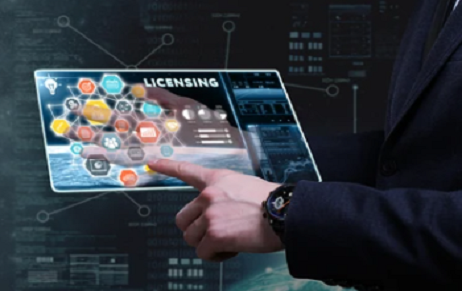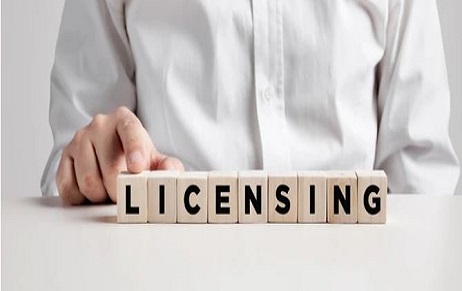Any successful café, restaurant, or retail establishment's environment is greatly influenced by its music. It…
Compulsory Licensing Under The Patents Act
Under the pre-2004 provisions of the Patents Act, section 55 of the Patents Act provided that an application may be made to court for the grant of a license after 3 years from the date of the grant of a patent, or 4 years from the date of filing of the patent application, whichever is the later on the grounds that a market for the patented invention is not being supplied, or is not being supplied on reasonable terms, in Singapore.
During the 2nd reading of the Patents (Amendment) Bill in 2004, Associate Professor Ho Peng Kee, then Senior Minister of State for Law, explained that the amendments to the compulsory licensing provisions of the Patents Act were:
“Currently, we have in place several grounds which a party can rely on, to apply to the courts for a compulsory license. To give patent owners greater control over their rights, we have narrowed the grounds for granting a compulsory license to one specific situation, which is to remedy an anti-competitive practice.”
(Singapore Parliamentary Reports, Patents (Amendment) Bill (2nd reading), 15 June 2004)
Characteristics Of The Compulsory License
A compulsory license is neither exclusive, nor assignable, save where the assignment is in connection with the goodwill of the business in which the patented invention is used and may be permitted by the court (section 55(4), (5)). For the proviso to operate, the court must be satisfied that the grounds under which the license was granted has ceased to exist or is unlikely to recur. The license fees which have to be paid under the compulsory license must be at a reasonable value (section 55(6)).
Statutory Licensing Under The Copyright Act; Copyright Tribunal
The Singapore Copyright Act contains many provisions setting out statutory licenses, subject to equitable remuneration; for example:
- For educational institutions, for education as well as assisting handicapped and intellectually handicapped readers (sections 52-54, 54A Copyright Act).
- Making of records of a musical work subject to a duty to pay 5% royalty and conditions (sections 56-57 Copyright Act).
- Use of copyright material for the service of Government on agreed terms or as specified by the Copyright Tribunal (section 198 Copyright Act).
The Duties Of The Copyright Tribunal
The Copyright Tribunal (‘the Tribunal’) is given jurisdiction to investigate a variety of licenses, including licences to perform a literary, dramatic or musical work or an adaptation in the public; license to broadcast the work (or an adaptation thereof) ; or licenses to make a sound recording or film of the work (or adaptation thereof) for the purpose of broadcasting the work or including it in a cable programme service. (section 149 Copyright Act).
The Copyright Tribunal May Confirm Or Vary An Existing License Scheme
Parties may also refer proposed and existing license schemes to the Tribunal, which may confirm or vary the scheme as it considers reasonable in the circumstances (sections 160 and 161 respectively in the Copyright Act). Once a license scheme is confirmed or varied, the Tribunal may still consider a further reference to the scheme (section 162).
The Copyright Tribunal May Grant Licenses In Certain Situations
Apart from referral licensing schemes, an individual can also apply to the Tribunal for the grant of licenses under section 163 Copyright Act, in the following situations:
- Where a licensor who operates a scheme has refused or failed to grant him a license in accordance with the scheme, or to procure the grant to him of such a license.
- Where the grant of a license is subject to the payment of charges or to conditions that are not reasonable in the circumstances of the case.
- Where a person claims that he required a license in a case to which a license scheme does not apply (including a case where a license scheme has not been formulated or is not in operation) and;
- that a licensor has refused or failed to grant the license or to pursue the grant of a license, and that in the circumstances it is unreasonable that the license should not be granted; or
- that a licensor proposes the grant of a license subject to the payment of charges or conditions that are unreasonable.
Compulsory Licensing For Acts Done For “Public Non-Commercial Purposes”
Part V of the ILDIC (Layout-Designs of Integrated Circuits Act) provides for two forms of compulsory licensing, in relation to layout designs. The first classifies any act done by Government (or a person authorized by Government) to be non-infringing if the act is done for a public non-commercial purpose (section 23(1)). An act is done for a ‘public non-commercial’ purpose if it is done (a) for the defense or national security of Singapore; or (b) to assist in the exercise of powers and the implementation of civil defense measures during a state of emergency or state of civil defense emergency under the Civil Defense Act. In such a situation the Government is under a duty to inform the qualified owner of the layout-design (section 25), who is also entitled to remuneration for such act(s) (section 26).
Compulsory Licensing To Remedy Anti-Competitive Practice
Secondly, the Court may also order for a grant of license to remedy an anti-competitive practice under section 27 ILDIC, subject to reasonable remuneration that is to be paid to the qualified owner.
Compulsory Licensing If Matter Is In The Public Interest
The Court may also order a compulsory license for the exploitation of a protected variety in Singapore; it is satisfied that such a license is in the public interest: section 34(2) PVPA. The applicant for such a license must first satisfy the Court that he has first taken all reasonable steps to obtain authorization from the applicant on reasonably commercial terms and conditions, and has failed to obtain such authorization within a reasonable period of time (section 34(6)).
Author: Tushar Ranjan, NUSRL, Ranchi, intern at Khurana & Khurana, Advocates and IP Attorneys. In case of any queries please contact/write back to us at aishani@khuranaandkhurana.com.



